Could a plastic punch revolutionise the lives of palm oil subsistence farmers?
- Published
Shaking up ways to help subsistence farmers through science
Close up it doesn't look like much. A small bit of white plastic that could easily be mistaken for a golf tee or a child's toy.
Yet according to Nathan Lakey, president and chief executive of Malaysian research firm Orion Biosains, this small gadget has the potential to improve the lives of millions of farmers in the developing world.
The piece of plastic is a leaf punch. Farmers can use it to take a small sample from the leaf of an oil palm seedling tree.
Part of the punch - a small barcode - detaches and is left on the tree's leaf. The rest of the punch - with a matching barcode and small retrieved section of leaf- is sent off to a lab for testing.
This test determines how much fruit a tree will yield, enabling those with poor potential to be discarded quickly.
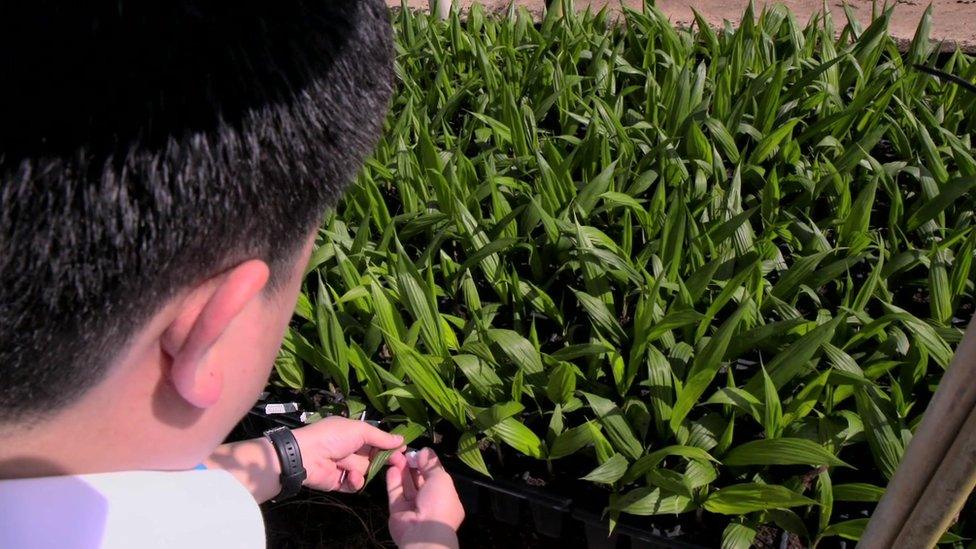
A small sample from the left of a seedling tree is enough for testing
The firm has applied for a patent for the product which Mr Lakey believes will prevent farmers wasting valuable growing space on oil palms with little potential, and ultimately drastically increase the amount of palm oil individual farmers can produce.
"Millions and millions of subsistence farmers depend on oil from cultivation for their economic livelihood and by increasing production in their farms we increase their economic opportunities," says Mr Lakey.
But can it really make that big a difference?
Unsurprisingly, according to Mr Lakey the answer is a resounding yes. He argues the test his firm offers will bring a level of scientific robustness into an industry which until now has largely relied on pot luck.
Currently farmers have to examine oil palm fruit on established trees - normally at around six-years-old - to determine whether it is a high yielding plant, but by this stage it's too late to uproot them.
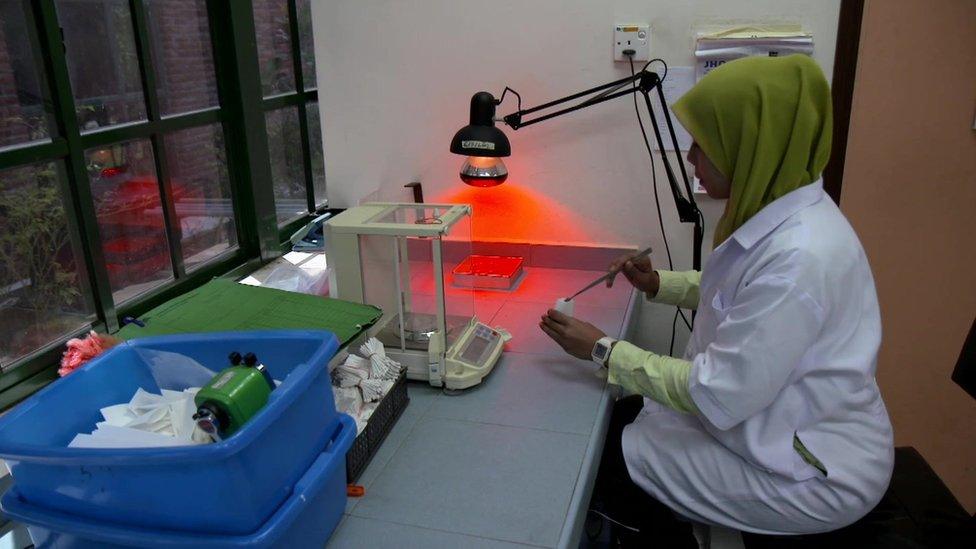
Orion Biosains used DNA sequencing to develop its test
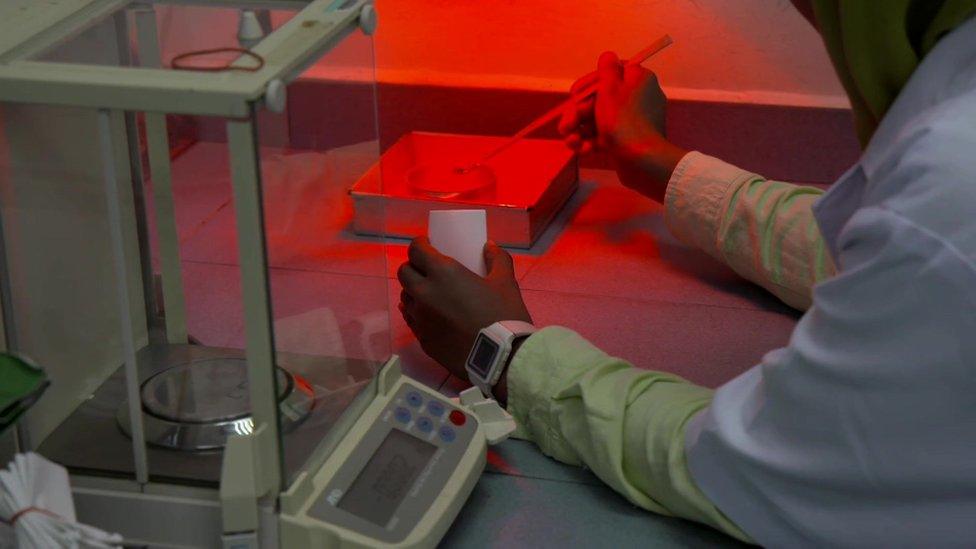
The firm believes DNA based molecular precision agriculture could change how farmers work
If it were removed at this point, any replacement would simply shrivel up and die under the canopy already developed by its neighbours.
The numbers also suggest the firm is onto something. Oil palm plants account for almost 45% of the edible oil globally, yet some 12% of those planted are low yielding.
It's estimated that on average 62 million metric tonnes of edible oil will be produced by oil palm trees worldwide each year, and a single percentage increase in yield could collectively be worth as much as $1bn, according to Orion's calculations.
But it's not just about the financial rewards. Crucially, it will also enable farmers to increase the amount of palm oil they produce without increasing the number of fields to plant them in - a massive advantage in an industry which has been heavily criticised for the amount of deforestation it has caused, and which is under pressure to curb its environmental impact.
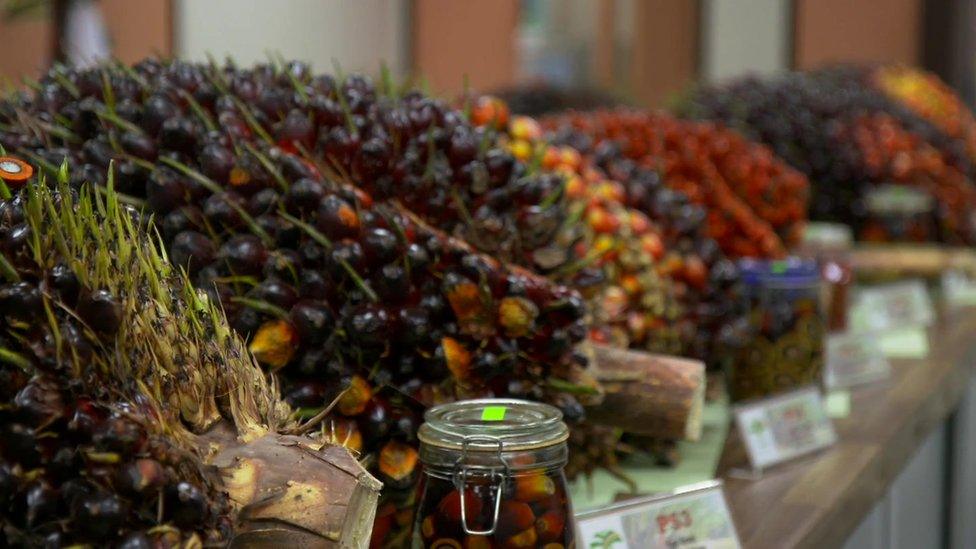
The Malaysian Palm Oil Board has taken more than forty years to amass its collection of samples
Biotechnology professor Denis Murphy, from the University of South Wales, agrees the device offers enormous potential due to the sheer size of the market, but warns that this means that it is a competitive field.
"For a plantation company it would be in their interests to try and develop their own products.
"The challenge for Orion is to move really quickly, become a service provider to the big plantations before they have the capacity to develop their own tests in house," he says.
Time and money
Yet establishing such a test requires huge amounts of time, as well as financial investment with no guarantee of a successful outcome.
Dr Nookiah Rajanaidu, a senior research fellow at Malaysian government agency The Malaysian Palm Oil Board, says it's taken them more than forty years to establish a complete collection of 110,000 oil palm samples.
Gathered painstakingly from around the world, they've all been planted at its research facility, where any attractive traits can be studied, and ultimately replicated.
It was having access to this wide variety of samples which enabled Orion via DNA sequencing to isolate the gene in the oil palm fruit responsible for the thickness of the fleshy fruit inside - the part that contains the edible oil.
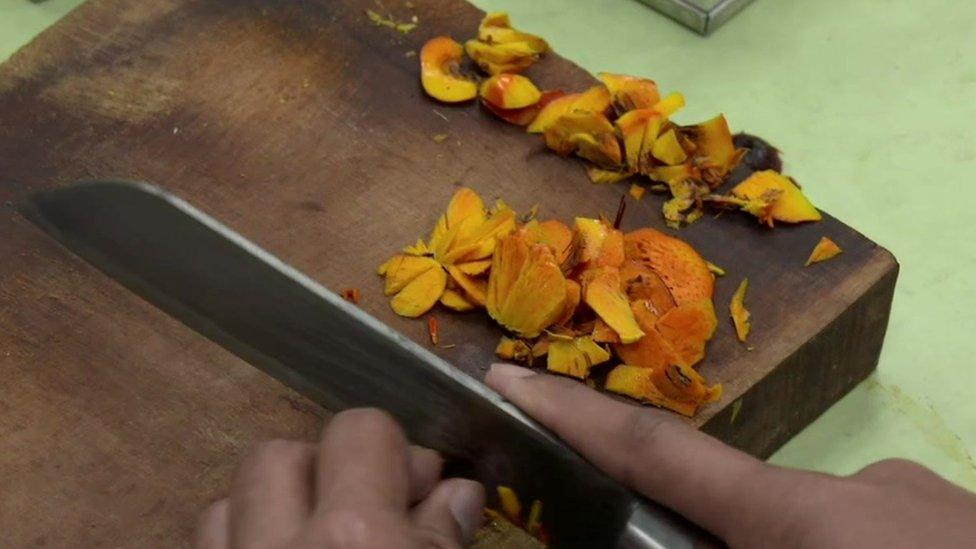
The edible oil is in the fleshy part of the Palm Oil fruit
Having the right gene will increase the amount of oil a tree can produce by almost a third.
"With this patent pending device we believe we can escort in an era of DNA-based molecular precision agriculture," says Mr Lakey.
And he has no intention of stopping at palm oil, saying this is just the first of many DNA tests for crops which the firm hopes to roll out.
"If we can come up with innovative technologies that drive food production in the lands we have, this could really go a long way to preserve the natural forces that still remain," he says.